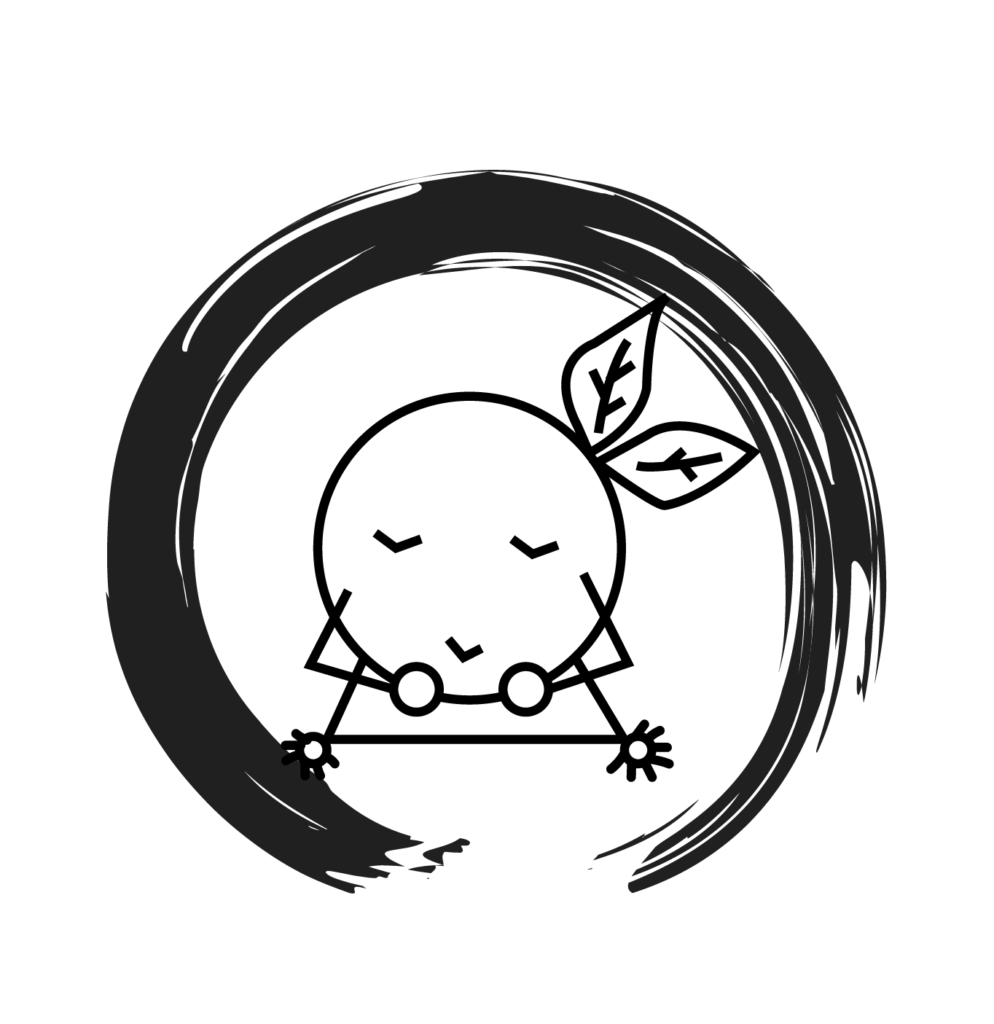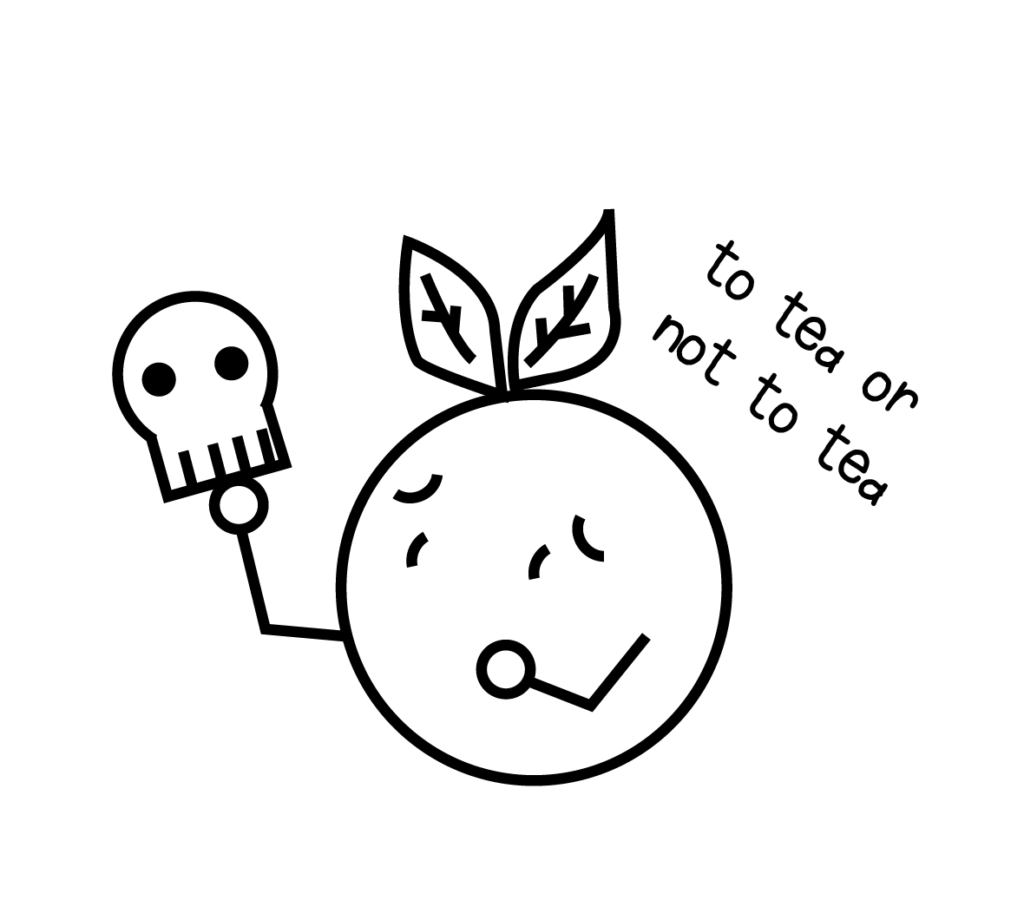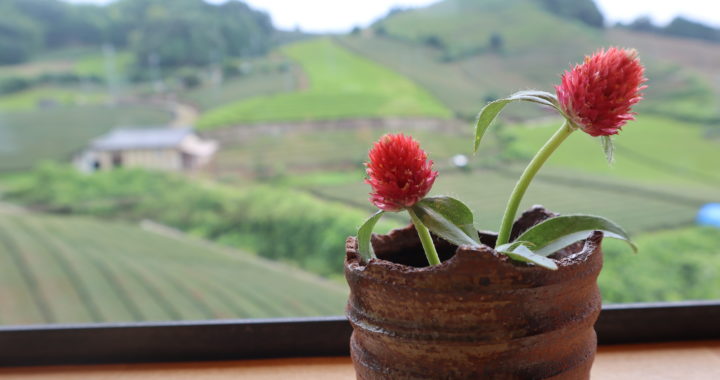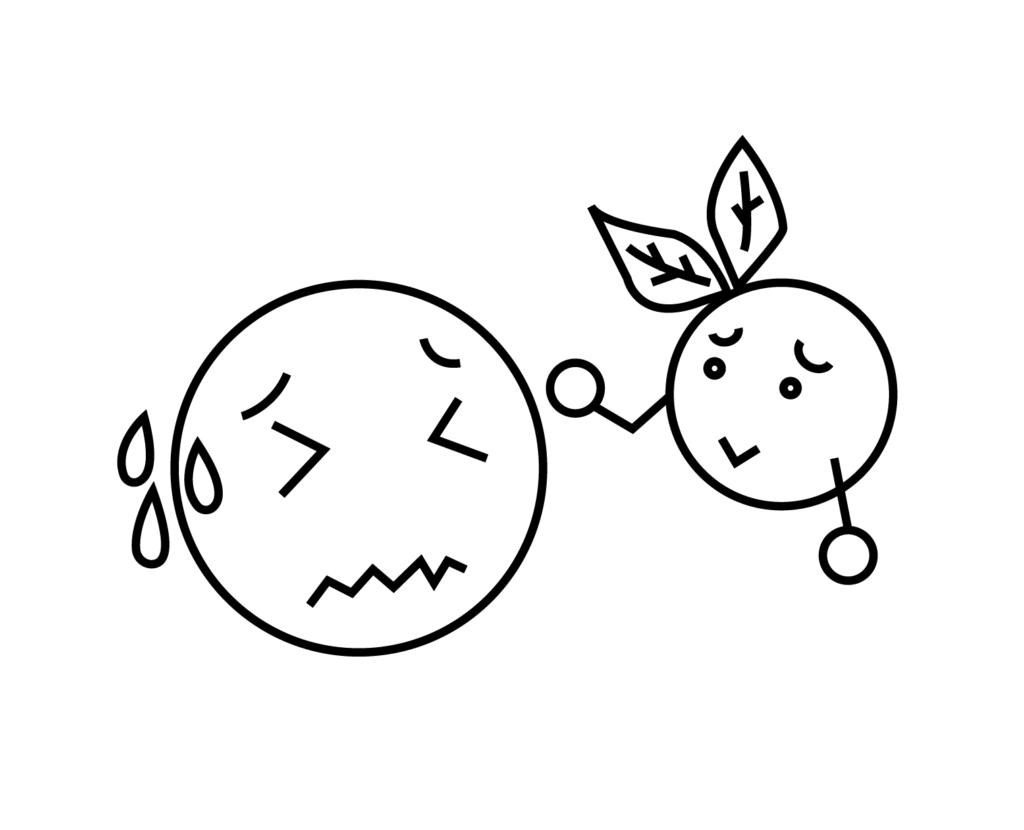Para el texto en español [PULSA AQUI]
If you want to read the second part of this series please go [HERE]/Si quieres leer la segunda parte de esta serie pulsa [AQUI]
Hello! This is the last issue in the HEALTH BENEFITS OF GREEN TEA series. It has been a pleasure to write this article for Obubu and I really hope it has also helped you in expanding your knowledge about tea! In the last two issues, we talked about the components of tea, then we zoomed it out to the physical effects of green tea and now we will continue with the effects of tea on the brain and our psychological health.
We must thank Myōan Eisai-san for promoting Japanese green tea in 1191 by bringing powdered tea, tea seeds, and tea drinking culture from China12 (more information about tea history HERE ). Eisai-san wrote the Kissa Yōjōki or Drink tea to prolong life to describe how green tea can treat some ailments, brought Zen Buddhism to Japan, and suggested that monks should drink green tea to aid with meditation16. Once we understand the effects that green tea has on the brain, we can understand why.
Let´s meditate together.
INCREASES ALERTNESS AND MEMORY
I would like to go over the topic of L-Theanine and its influence on the brain. L-Theanine has been shown to regulate oscillatory brain alfa, beta, and theta waves in humans with an ability to pass through the blood-brain barrier during cognitive task execution1,15. Alfa waves are present when we are in a relaxed or meditative mental state, beta waves are present in states of working and thinking and theta waves are present in REM sleep and dreaming but are very helpful for learning and memory14. L-Theanine and caffeine are a good combination for mental tasks as L-Theanine keep caffeine in check and we can get good effects from it7. Now we can understand why Eisei-san encouraged tea drinking to his fellow monks during the long hours they would be meditating. For example, drinking green tea before studying, exams, public speeches or kendo training has helped me a lot!
In summary, L-Theanine´s effect on the alfa, beta, and theta waves of the brain helps us to remain focused, prioritize and aid in our working memory6. L-Theanine is synthesized in the roots of tea and stored in the leaves via the trunk. By shading the tea for two or three weeks before harvest L-Theanine´s decomposition slows down thus maintaining high levels in the leaf2.
HELPS TO COPE WITH STRESS AND ANXIETY
L-Theanine resembles glutamate and GABA, the brain’s major excitatory and inhibitory neurotransmitter systems triggering the release of dopamine and serotonin8. L-Theanine also reduces cortisol (our stress hormone) levels short term which can aid in how we cope with stressors8,9. Still, we must be mindful that green tea consumption is only one of the many tools we can use to look after our mental health.
Remember how the L-Theanine gets stored in the leaves? And that the umami flavour is due to that component? Well, to protect itself from any pests the tea plant produces more caffeine to give the leaves a bitter flavour that is not very appealing to the little critters. Gyokuro, for example, is a tea high in caffeine and L-Theanine so drinking a good amount of tea high in caffeine can also make you more anxious! I remember the one day I had too much matcha and I felt surprisingly alert but also extremely anxious, which did not help. If you are sensitive to caffeine, make sure you stick to one or two cups of green tea or find the right balance for you.
As Eisai-san said: “When, however, the whole body feels weak, devitalized, and depressed, it is a sign that the heart is ailing. Drink lots of tea, and one’s energy and spirits will be restored to full strength.”16
 “To tea or not to tea, that is the question”
“To tea or not to tea, that is the question”
PREVENTS NEURODEGENERATION
The antioxidants in green tea prevent cellular damage and inflammation as well as the calming effects of L-Theanine can prevent stress-induced atrophy on the brain, therefore suppressing a decline in brain function and preventing neuropathologies like Alzheimer´s or Parkinson’s disease 1,2,3,4,5.
And these are some of the effects of green tea on our brain and our psychological health! Tea is such an important part of us, tea lovers. Japanese green tea brought me to Obubu and some of the best times of my life! From enjoying tea alone whilst I am writing this piece to drinking it with my fellow interns and friends, tea has been part of the daily lives of people from all walks of life and cultures all over the world like Turkey, England, China, Japan, and Morocco, to name a few11,12. In Japan, Eisai-san used matcha green tea as a hangover remedy for the third general Sanetomo Minamoto and as he felt much better afterward, green tea became popular in samurai classes. Sen-no-Rikyu developed the tea ceremony during the Sengoku period and had a very important role in politics and diplomacy13!
As Okakura Kakuzo said in his Book of Tea: “Tea began as a medicine and grew into a beverage“10. You cannot deny that tea makes the world spin around, right?
We’ll be friends forever!
This table can help you decide what type of Obubu tea you would like to drink depending on what properties you would like to prioritize. In regards to the components, the ones that would have more of them are Spring teas (or first flush) as the leaves have had time to store plenty of nutrients! Unshaded teas will have a higher content of antioxidants (catechins) and shaded tea will have a higher content of L-Theanine which will help you to be more focused. Summer teas (second flush) grow very fast due to the sunny weather and are harvested faster, not having much time to keep the same number of components and having a milder flavour. Autumn teas are good for easy everyday drinking due to their mild flavour but still have some components in their leaf.
| What would you like today? | What tea do we recommend? |
| A tea that gives me all the beneficial effects of green tea! | Matcha |
| A tea full of antioxidants! | Sencha of the Spring Sun, Sencha of the Summer Sun, Sencha of the Earth, Sencha of the Forest Glow, Sencha of the Autumn Moon, Yanagi Bancha |
| A tea to feel more focused! | Heavenly Drop Gyokuro, Tsubame Kukicha, Mejiro Kukicha, Tencha |
| A mix of both! | Kabuse Sencha, Sencha of the wind, Sencha Brightness, Sencha of the Gushing Brook |
The text references are at the end of the post.
[SPANISH VERSION]
¡Hola! Esta es la última parte de la serie de LOS BENEFICIOS DE EL TÉ VERDE. ¡Ha sido un placer poder escribir este artículo para Obubu y espero que también te haya ayudado en expandir tu conocimiento sobre el té! En la primera parte hablamos de los componentes de el té para luego ampliarlo con los efectos físicos de el té verde. Ahora continuaremos con los efectos del té en el cerebro y nuestra salud mental.
Tenemos que agradecer a Myōan Eisai-san por promover el té verde en Japón en 1191 al traer té en polvo, semillas y la cultura del té en China12 (más información sobre la historia del té AQUÍ ). Eisai-san escribió el libro Kissa Yōjōki o Bebe té para prolongar la vida para describir como el té verde puede tratar algunas enfermedades, trajo el Budismo Zen a Japón y sugirió que los monjes deberían beber té para ayudarles con la meditación16. Una vez que entendamos los efectos del té verde en el cerebro, sabremos porqué.
AUMENTA LA ATENCIÓN Y LA MEMORIA
Me gustaría repasar el tema de la influencia de la L-Teanina en el cerebro. Se ha demostrado que la L-Teanina regula la actividad oscilatoria cerebral de las ondas alfa, beta y theta y tiene la habilidad de cruzar la barrera hematoencefálica durante actividades de ejecución cognitiva1,15. Las ondas alfa se presentan durante un estado relajado o meditativo, las ondas beta durante estados de trabajo y pensamiento y las ondas theta se presentan durante el estado REM y cuando soñamos. Estas últimas son muy útiles durante el aprendizaje y la memoria14. La combinación de la L-Teanina con la cafeína del té ayuda en tareas mentales y la primera mantiene a raya la segunda a la vez de beneficiarnos de sus efectos7. Ahora podemos entender por qué Eisei-san recomendaba la ingesta de té a sus compañeros durante las largas horas de meditación. Por ejemplo, ¡beber té verde antes de estudiar, un examen, discursos o entrenamiento de kendo me ha ayudado un montón!
En resumen, el efecto de la L-Teanina en las ondas alfa, beta y theta del cerebro nos ayuda a mantenernos centrados, priorizar mejor y ayudarnos a tener mejor memoria funcional8. La L-Teanina se sintetiza en las raíces del té y se almacena en las hojas a través del tronco. Al sombrear el té durante dos o tres semanas previamente a la cosecha, la L-Teanina se descompone más despacio por lo tanto manteniendo altos niveles en la hoja2.
AYUDA A MANEJAR EL ESTRÉS Y LA ANSIEDAD
La L-Teanina es análoga del glutamato y GABA, ambos excitatorios e inhibitorios neurotransmisores cerebrales causantes de la liberación de dopamina y serotonina8. La L-Teanina también reduce los niveles de cortisol (nuestra hormona del estrés) a corto plazo y eso puede ayudarnos a hacer frente a factores estresantes8,9. Aun así, debemos ser conscientes que la ingesta de té verde es una de las muchas herramientas que podemos usar para cuidar de nuestra salud mental.
¿Te acuerdas que las L-Teanina se almacena en las hojas de la planta del té? ¿Y que el sabor umami se debe a ese componente? Pues bueno, para protegerse de parásitos la planta del té produce más cafeína para tener un sabor más amargo que no es muy apetecible para los bichitos. Gyokuro, por ejemplo, es un té alto en cafeína y L-Teanina; por lo tanto, beber una gran cantidad de té alto en cafeína puede causarte ansiedad. Me acuerdo de un día que bebí un montón de matcha me sentí sorprendentemente atenta pero también extremadamente ansiosa. Si eres sensitivo a la cafeína como yo, asegúrate de ceñirte a una o dos tazas de té verde o prueba cual es el mejor equilibrio para ti.
Como Eisai-san dijo: “Cuando, sin embargo, el cuerpo se siente débil, desvitalizado, y deprimido, es un signo de que el corazón está enfermo. Bebed mucho té, y la energía de uno y espíritu recuperará su fuerza.”16
 “Té o no té, esa es la cuestión”
“Té o no té, esa es la cuestión”
PREVIENE LA NEURODEGENERACIÓN
Los antioxidantes del té verde previenen el daño celular y la inflamación y los efectos calmantes de la L-Teanina pueden prevenir la atrofia cerebral causada por el estrés; por consecuente previniendo el declive de la función cerebral y neuropatologías como Alzheimer o la enfermedad de Parkinson1,2,3,4,5.
¡Y estos son algunos de los efectos del té verde en nuestro cerebro y por consecuente nuestra salud mental! El té es una parte importante para los amantes del té. ¡El té verde japonés me trajo a Obubu y a una de las mejores experiencias de mi vida! Desde disfrutar de beber té mientras escribo esta pieza a beberlo con los otros becarios y amigos, el té ha sido parte de la vida diaria gentes de distintas clases sociales y culturas en países como Turquía, Inglaterra, China, Japón y Marruecos11,12. En Japón, Eisai-san ofreció matcha como cura para la resaca al general Sanemoto Minamoto y debido a que se encontró mejor, el té verde se convirtió en una bebida popular entre la clase samurai. ¡Sen-no-Rikyu perfeccionó la ceremonia del té durante la época Sengoku y tuvo un rol importantísimo en política y diplomacia!13
Como Okakura Kakuzo dijo en su Libro del Té: “El té empezó como una medicina y se transformó en un brebaje”10. No podemos negar que el té mueve el mundo, ¿verdad?
Esta tabla te ayudará a decidir que té de Obubu te gustaría beber dependiendo de los efectos que querrías priorizar. En cuanto a los componentes, los tés que tendrían mayor cantidad son los tés de primavera (o primera cosecha) ya que las hojas han tenido tiempo a almacenar un montón de nutrientes. Tés que no han sido sombreados tendrán una cantidad mayor de antioxidantes (catequinas) y tés sombreados tienen un nivel elevado de L-Teanina que te ayudará a concentrarte mejor. Tés de verano (o segunda cosecha) crecen muy deprisa debido al buen tiempo y son cosechadas en un corto espacio de tiempo; por lo que no tienen tiempo a almacenar tantos nutrientes y tienen un sabor más suave. Los tés de otoño son buenos para beber al día a día debido a su sabor suave y contienen un nivel menor de componentes.
| ¿Qué quieres hoy? |
¿Qué té recomiendas? |
| ¡Un té que me aporta todos los beneficios! | Matcha |
| ¡Un té lleno de antioxidantes! | Sencha of the Spring Sun, Sencha of the Summer Sun, Sencha of the Earth, Sencha of the Forest Glow, Sencha of the Autumn Moon, Yanagi Bancha |
| ¡Un té para concentrarse! | Heavenly Drop Gyokuro, Tsubame Kukicha, Mejiro Kukicha, Tencha |
| ¡Una mezcla de ambos! | Kabuse Sencha, Sencha of the wind, Sencha Brightness, Sencha of the Gushing Brook |
REFERENCES/REFERENCIAS
- Higashiyama, A., Htay, H. H., Ozeki, M., Juneja, L. R., & Kapoor, M. P. (2011). Effects of l-theanine on attention and reaction time response. Journal of Functional Foods, 3(3), 171–178. https://doi.org/10.1016/j.jff.2011.03.009
- Unno, K., & Nakamura, Y. (2021). Green tea suppresses brain aging. Molecules, 26(16), 4897. https://doi.org/10.3390/molecules26164897
- Kochman, J., Jakubczyk, K., Antoniewicz, J., Mruk, H., & Janda, K. (2020). Health Benefits and Chemical Composition of Matcha Green Tea: A Review. Molecules, 26(1), 85. https://doi.org/10.3390/molecules26010085
- Gonçalves, P. B., Sodero, A. C., & Cordeiro, Y. (2021). Green tea epigallocatechin-3-gallate (EGCG) targeting protein misfolding in drug discovery for Neurodegenerative Diseases. Biomolecules, 11(5), 767. https://doi.org/10.3390/biom11050767
- Prasanth, M., Sivamaruthi, B., Chaiyasut, C., & Tencomnao, T. (2019). A Review of the Role of Green Tea (Camellia sinensis) in Antiphotoaging, Stress Resistance, Neuroprotection, and Autophagy. Nutrients, 11(2), 474. https://doi.org/10.3390/nu11020474
- Baba, Y., Inagaki, S., Nakagawa, S., Kaneko, T., Kobayashi, M., & Takihara, T. (2021). Effects of L-theanine on cognitive function in middle-aged and older subjects: A randomized placebo-controlled study. Journal of Medicinal Food, 24(4), 333–341. https://doi.org/10.1089/jmf.2020.4803
- Haskell, C. F., Kennedy, D. O., Milne, A. L., Wesnes, K. A., & Scholey, A. B. (2008). The effects of L-theanine, caffeine and their combination on cognition and mood. Biological Psychology, 77(2), 113–122. https://doi.org/10.1016/j.biopsycho.2007.09.008
- Plackzek, K. (2017). L-theanine in green tea stimulates neurotransmitter production & reduces anxiety. ZRT Laboratory. (n.d.). Retrieved July 25, 2022, from https://www.zrtlab.com/blog/archive/l-theanine-green-tea-neurotransmitter-anxiety/
- Rose, J., & Nandipaty, C. (2020). Is L-theanine effective in decreasing subjective stress levels and improving physiological markers of the stress response? Evidence-Based Practice, Publish Ahead of Print. https://doi.org/10.1097/ebp.0000000000001103
- Okakura Kakuzō, Calza, G. C., & Parpajola, A. (2022). The book of tea. Officina Libraria.
- Unno, K., Hara, A., Nakagawa, A., Iguchi, K., Ohshio, M., Morita, A., & Nakamura, Y. (2016). Anti-stress effects of drinking green tea with lowered caffeine and enriched theanine, epigallocatechin and arginine on psychosocial stress induced adrenal hypertrophy in mice. Phytomedicine, 23(12), 1365–1374. https://doi.org/10.1016/j.phymed.2016.07.006
- Gao, G. (2021). A comparative study of the aesthetic characteristics of Chinese and Japanese tea culture. Proceedings of the 2nd International Conference on Language, Communication and Culture Studies (ICLCCS 2021). https://doi.org/10.2991/assehr.k.211025.037
- Wikimedia Foundation. (2020). History of tea in Japan. Wikipedia. Retrieved July 26, 2022, from https://en.wikipedia.org/wiki/History_of_tea_in_Japan
- 4 types of brainwaves and how they impact your mental health. MyBrainDR. (2018, October 24). Retrieved July 27, 2022, from https://mybraindr.com/4-types-of-brainwaves-and-how-they-impact-your-mental-health/
- Okello, E. J., Abadi, A. M., & Abadi, S. A. (2015). Effects of green and black tea consumption on brain wave activities in healthy volunteers as measured by a simplified electroencephalogram (EEG): A Feasibility Study. Nutritional Neuroscience, 19(5), 196–205. https://doi.org/10.1179/1476830515y.0000000008
- De Bary, W. T., Varley, P., Keene, D., & Tanabe, G. (2002). Drink tea and prolong life. In Sources of Japanese tradition (2nd ed., Vol. 1, Ser. Introduction to Asian Civilizations, pp. 393–395). essay, Columbia University Press. Cell & Bioscience, 11(1). https://doi.org/10.1186/s13578-021-00680-8




